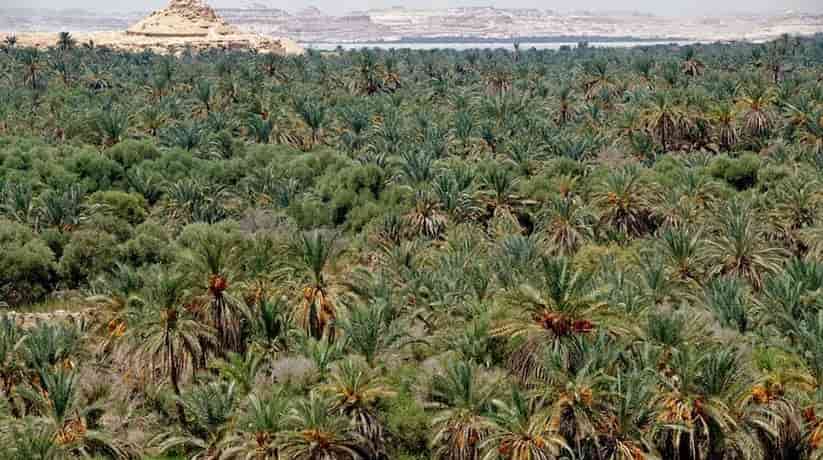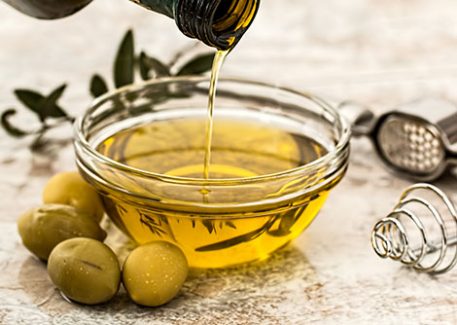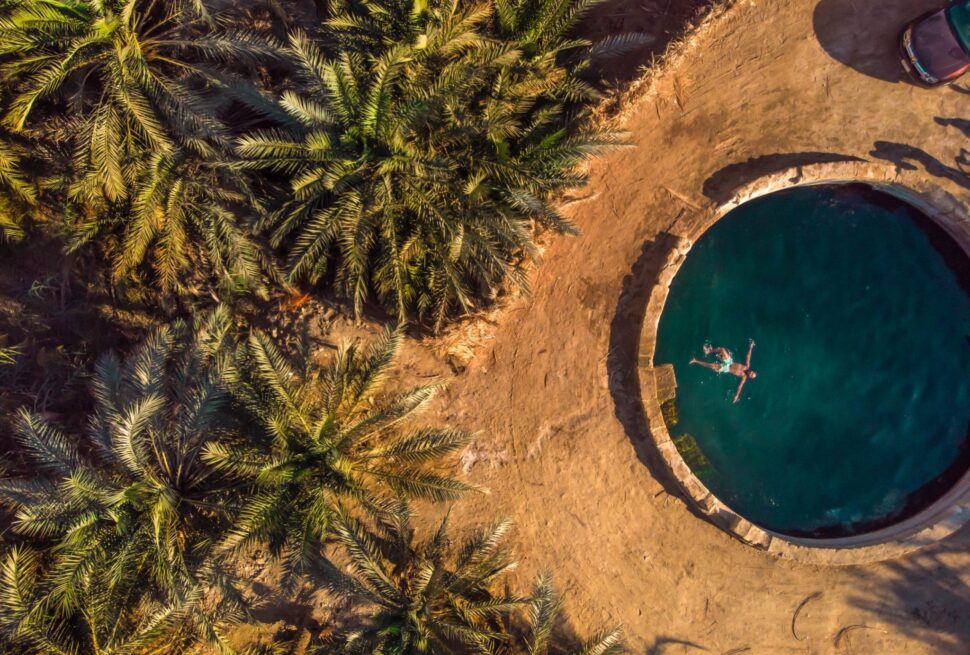
Introduction
Overview of Siwa Olive Farms
Nestled in the enchanting Siwa Oasis, Siwa Olive Farms is a hidden gem of Egypt‘s agricultural landscape. I remember my first visit — walking through the lush groves, feeling the leaves brushing against me, and inhaling the rich aroma of olives ripe for harvest.
- Unique Environment:
- Desert climate with natural underground water sources.
- Soil enriched with minerals ideal for olive cultivation.
- Diverse Varieties:
- Grown primarily for oil production and culinary use.
- Combined traditional techniques with modern practices.
Siwa Olive Farms embodies not just agriculture, but a deep-rooted culture that connects the community to its heritage. It’s a transformative experience that celebrates the age-old tradition of olive farming in Egypt.

History of Olive Cultivation in Egypt
Ancient Roots of Olive Farming
Olive cultivation in Egypt has a fascinating history that dates back thousands of years. Imagine wandering through ancient Egyptian markets where fresh olives were sold alongside grains and spices. The olive tree was not just valued for its fruit but also held a significant place in religious rituals and daily life.
- Symbol of Peace and Prosperity:
- Depicted in ancient Hieroglyphics.
- Represented abundance in offerings to the gods.
- Culinary Traditions:
- Essential ingredient in ancient Egyptian dishes.
- Used for preserving food and flavoring meals.
Modern Developments in the Industry
Fast forward to today, and olive farming in Egypt has evolved remarkably. On my visits to modern farms, I’ve witnessed firsthand the blend of ancestral practices with cutting-edge technology.
- Innovative Techniques:
- Drip irrigation enhances water efficiency.
- Organic farming methods to improve yield quality.
- Growing Export Market:
- Olive oil has become a staple in international cuisines.
- Producers are embracing certifications for quality and sustainability.
These developments reflect a cultural renaissance, reminding us how deeply intertwined the history of olive cultivation is with the identity of Egypt.

Importance of Olive Oil in Egyptian Culture
Culinary Uses of Olive Oil
Olive oil is more than just a cooking ingredient in Egypt; it’s a vital part of our culinary heritage. I fondly recall family gatherings where dishes glistened with the golden elixir, infusing flavors into every bite.
- Key Features:
- Enhances flavors of traditional dishes like Fattah and Tamiya.
- Used as a base for marinades and dressings.
- Everyday Staple:
- Drizzled over fresh salads or served for dipping with bread.
- Essential for preparing iconic Mediterranean recipes.
Medicinal and Skincare Applications
Beyond the kitchen, olive oil has deep roots in medicinal and skincare traditions. My grandmother swore by its healing properties, often applying it to soothe dry skin or use in homemade remedies.
- Health Benefits:
- Rich in antioxidants and healthy fats.
- Aids in digestion and improves heart health.
- Skincare Uses:
- Acts as a natural moisturizer and hair conditioner.
- Frequently used in traditional remedies for various skin ailments.
Olive oil is thus intertwined with our culinary delights and holistic practices, making it a cherished ingredient in Egyptian culture.

Siwa Olive Farms: Production Process
Farming Techniques in Siwa Oasis
The production process at Siwa Olive Farms is nothing short of remarkable. On my visit, I marveled at the ingenious farming techniques employed in this unique oasis. The farmers here combine tradition with innovation to yield the best olives while conserving their environment.
- Agroecological Practices:
- Utilizes natural underground water sources for irrigation.
- Employs crop rotation to maintain soil fertility.
- Organic Methods:
- Focus on natural pest control instead of synthetic pesticides.
- Commitment to sustainable farming practices enhances olive quality.
Harvesting and Processing Methods
Once the olives are ripe, the excitement truly begins! I had the chance to participate in the harvesting process, and it was an unforgettable experience.
- Harvesting Techniques:
- Manual handpicking ensures minimal damage to the fruit.
- Timing is crucial; the olives are harvested when they reach peak ripeness.
- Processing:
- The freshly picked olives are quickly transported to the mill to retain quality.
- Cold-press methods preserve flavor and nutrients, resulting in high-quality olive oil.
This seamless blend of traditional and modern techniques not only elevates the quality of the oils produced but also showcases a deep respect for the land and its practices.

Sustainability and Environmental Impact
Water Management Practices
Sustainability is at the heart of Siwa Olive Farms’ operations. During my visit, I was impressed by their innovative water management practices, which are essential given the arid climate.
- Efficient Irrigation:
- Drip irrigation systems minimize water waste.
- Rainwater harvesting techniques collect valuable resources.
- Soil Conservation:
- Techniques like mulching help regulate soil moisture and prevent erosion.
- Cover crops are used to maintain soil health and fertility.
Impact on Local Biodiversity
Beyond water management, Siwa Olive Farms plays a crucial role in enhancing local biodiversity. As I wandered through the groves, I noticed a vibrant ecosystem thriving around the olive trees.
- Supporting Wildlife:
- The farm provides habitats for various bird species and beneficial insects.
- Native plants are integrated into the farming landscape to promote ecological balance.
- Crop Diversity:
- Rotating crops and planting cover crops enrich the soil and attract diverse wildlife.
- Sustainable practices contribute to the overall health of the oasis ecosystem.
By prioritizing these sustainable practices, Siwa Olive Farms not only cultivates quality olives but also nurtures the environment, ensuring the longevity of this vital landscape.

Economic Significance of Siwa Olive Farms
Contribution to Egyptian Economy
Siwa Olive Farms plays a vital role in supporting the Egyptian economy, something I truly appreciated during my visits. The olive industry not only creates jobs but also stimulates local commerce.
- Job Creation:
- Provides employment for farmers and seasonal workers during harvest.
- Encourages entrepreneurship in processing and selling olive oil.
- Regional Development:
- Boosts local businesses, from transport to hospitality.
- Contributes to infrastructure improvements and community services.
Export Markets and Trade Relationships
The reach of Siwa Olive Farms extends beyond local borders. I was amazed to learn about the thriving export market for Egyptian olive oil, which showcases the rich flavors of our land.
- Growing Demand:
- Olive oil from Siwa is increasingly in demand in international markets, especially in Europe and North America.
- Renowned for its quality, it’s gaining recognition in culinary circles.
- Trade Partnerships:
- Collaborations with global distributors enhance market access.
- Certification programs boost credibility and open doors to new trade relationships.
Through these contributions, Siwa Olive Farms not only enriches the local economy but also elevates Egypt’s status in the global olive oil market, showcasing our agricultural heritage.

Challenges and Future Prospects
Climate Change Effects
As I wandered through the olive groves, I couldn’t help but ponder the significant challenges the industry faces, primarily due to climate change. The impacts are evident, and it’s a concern for all farmers.
- Rising Temperatures:
- Increased heat can stress olive trees and reduce yields.
- Changes in rainfall patterns affect irrigation strategies.
- Pest and Disease Proliferation:
- Warmer climates often lead to more pests and diseases, threatening crops.
- Farmers need to adapt their practices to combat these challenges.
Technological Advancements in Olive Farming
Fortunately, the future looks promising thanks to technological advancements. During my visits, I was introduced to some innovative practices being implemented at Siwa Olive Farms.
- Precision Agriculture:
- Use of drones and sensors to monitor crop health.
- Data-driven decisions enhance productivity and resource efficiency.
- Sustainable Practices:
- Advancements in organic farming techniques to preserve soil health.
- Enhanced irrigation systems help mitigate water scarcity.
By embracing technology, Siwa Olive Farms is well-positioned to overcome current challenges and ensure a thriving future for olive cultivation in Egypt. This blend of tradition and innovation excites me about what lies ahead for this fascinating industry.

Promoting Sustainable Practices
Community Engagement Initiatives
Siwa Olive Farms isn’t just about olive production; it’s also deeply rooted in community engagement. I was thrilled to learn about various initiatives aimed at involving local populations in sustainable practices.
- Educational Workshops:
- Programs teach sustainable farming techniques to local farmers.
- Hands-on training sessions promote eco-friendly practices.
- Collaboration with Local Schools:
- Students participate in projects around olive farming and sustainability.
- Engaging youth fosters a culture of environmental responsibility.
Certification Programs for Organic Farming
In tandem with community efforts, Siwa Olive Farms is also focused on obtaining certification for organic farming practices. This initiative excited me, as it not only enhances the quality of produce but also reinforces a commitment to sustainability.
- Organic Certification Benefits:
- Generates consumer trust in high-quality olive oil.
- Opens doors to international markets that prioritize organic products.
- Ongoing Monitoring:
- Regular assessments ensure compliance with organic farming standards.
- Continuous improvement practices are embedded within the farming culture.
These concerted efforts highlight how Siwa Olive Farms is paving the way for a sustainable future, strengthening both the local community and the environment while producing excellent olive oil. It’s a journey I feel proud to witness!

Culinary Tourism in Siwa Oasis
Olive-Themed Culinary Experiences
Culinary tourism in Siwa Oasis offers fantastic olive-themed experiences that tantalize the palate. On my recent visit, I was thrilled to explore how local chefs creatively incorporate olives and olive oil into an array of dishes.
- Cooking Classes:
- Hands-on sessions with local chefs to create traditional dishes.
- Emphasis on using fresh, local ingredients, including olives.
- Tasting Tours:
- Guided tours featuring tastings of various olive oils and local products.
- Pairing sessions with local wines and cheeses enhance the experience.
Cultural Significance of Olive Oil in Local Cuisine
Olive oil holds a sacred place in Siwa’s culinary landscape. It wasn’t just about the food—it was about connecting with the culture. I learned how pivotal olive oil is in traditional dishes.
- Integral Ingredient:
- Used in everyday meals, from dips to elaborate feasts.
- Adds depth and flavor to local favorites like Koshari and Mahshi.
- Cultural Celebrations:
- Olive oil is central to many traditional festivals and gatherings.
- Symbolizes abundance and hospitality in local customs.
By immersing yourself in these olive-themed culinary experiences, you not only indulge your taste buds but also gain a deeper appreciation for the rich culture surrounding olive oil in Siwa Oasis. It’s a feast for both the tummy and the soul!





